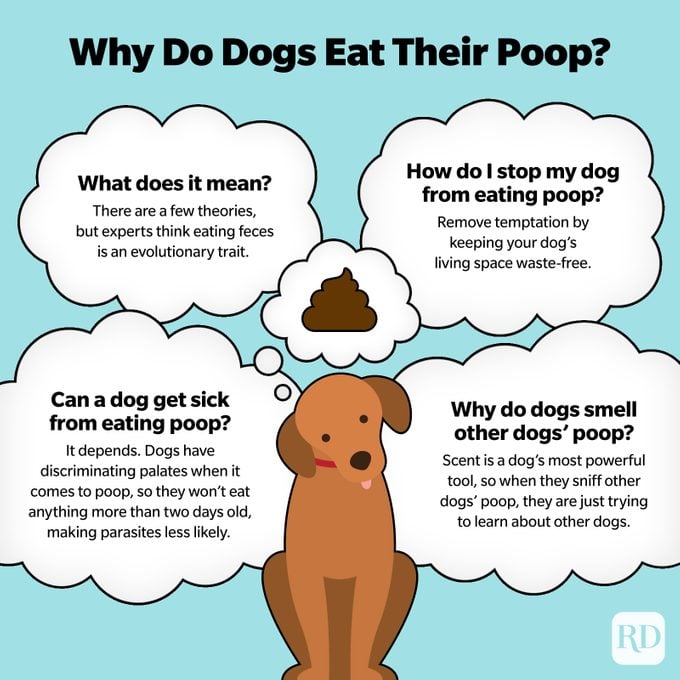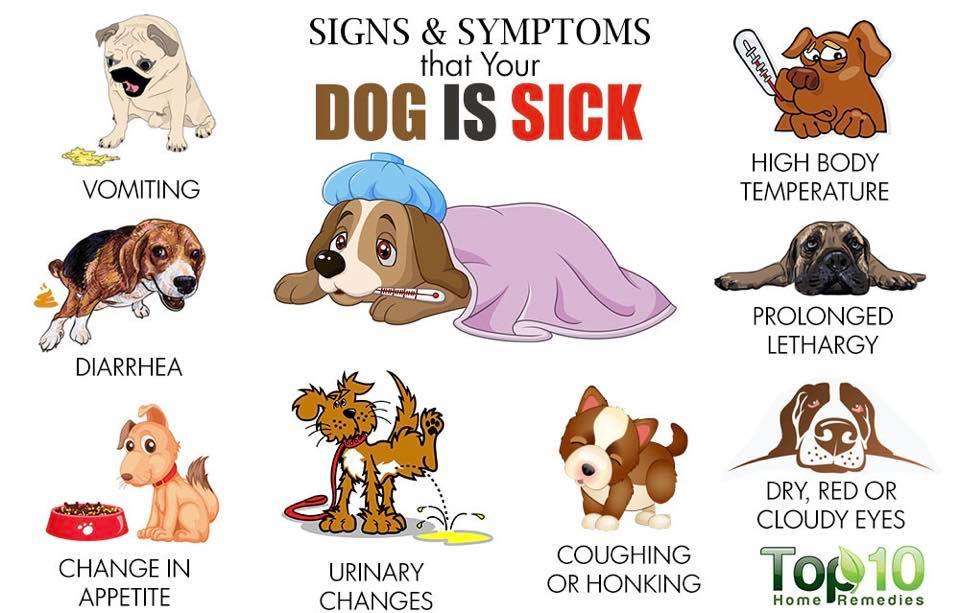Key Takeaways:
- Dogs may eat dirt due to nutritional deficiencies in their diet.
- Eating dirt can be a sign of boredom or anxiety in dogs.
- Dirt can provide dogs with minerals and nutrients that they may be lacking.
- Some dogs eat dirt as a way to soothe an upset stomach or alleviate digestive issues.
- If your dog is consistently eating dirt, it is important to consult with a veterinarian to rule out any underlying health problems.
Introduction:
Have you ever wondered why dogs eat dirt? It may seem strange or even gross, but understanding this behavior can provide valuable insights into our furry friends' health and well-being. Exploring the reasons behind this peculiar habit can help us better care for our canine companions and ensure their happiness. So, if you're curious about why dogs have a penchant for munching on dirt, stick around as we uncover the fascinating truth behind this puzzling behavior.
Word count: 77
Why do dogs eat dirt?
Dogs have a natural instinct to explore and investigate their surroundings, and sometimes this includes eating things they shouldn't. Eating dirt is a common behavior in dogs, and there are several reasons why they might do it.
One reason is that dogs may be trying to fulfill a nutritional deficiency. Dirt contains minerals and other nutrients that dogs may be lacking in their diet. By eating dirt, they are attempting to supplement their nutritional needs.
Another reason is that dogs may find the texture and taste of dirt appealing. Some dogs simply enjoy the sensation of chewing on something gritty or earthy. It can also be a way for them to alleviate boredom or anxiety.
Nutritional Deficiency
If a dog's diet lacks certain essential nutrients, they may be inclined to eat dirt in an attempt to obtain those missing nutrients. For example, if a dog is deficient in iron or calcium, they may seek out dirt as a source of these minerals.
In some cases, dogs with gastrointestinal issues or malabsorption problems might also eat dirt as a way to soothe their stomach discomfort. The dirt can act as an irritant that helps them vomit or relieve constipation.
Sensory Stimulation
The texture and taste of dirt can provide sensory stimulation for dogs. Chewing on something gritty can feel satisfying for them, especially if they are teething or have an oral fixation. Additionally, the earthy smell and taste of soil might be intriguing to some dogs.
This behavior can also stem from boredom or anxiety. Dogs who lack mental stimulation or are anxious may resort to eating dirt as a way to occupy themselves or alleviate stress.
How common is it for dogs to eat dirt?
Eating dirt is a relatively common behavior in dogs, and many dog owners have witnessed their pets engaging in this activity. While it may seem strange to us, it's important to remember that dogs explore the world through their senses, including taste.
However, the frequency of dirt-eating can vary among individual dogs. Some dogs may only do it occasionally, while others may develop a habit of regularly consuming dirt. The prevalence of this behavior can also depend on factors such as breed, age, and environment.
Breed and Instincts
Certain dog breeds have a stronger inclination towards eating dirt due to their instincts or genetic predispositions. For example, hunting breeds like hounds are known for having a keen sense of smell and may be more prone to digging and exploring with their mouths.
Additionally, some working breeds or herding dogs might exhibit dirt-eating behavior as a result of their natural instincts. These dogs have historically been bred for specific tasks that involve digging or foraging in the soil.
Environmental Factors
The environment in which a dog lives can also influence their likelihood of eating dirt. Dogs who spend more time outdoors or have access to areas with loose soil are more likely to engage in this behavior. Similarly, if there are other animals around that exhibit similar behaviors (such as digging), a dog may be more inclined to imitate them.
In some cases, environmental factors like boredom or lack of mental stimulation can contribute to a dog's desire to eat dirt. If they don't have enough toys or activities to keep them occupied, they may resort to exploring and ingesting substances like dirt.
Are there health risks when dogs eat dirt?
While occasional ingestion of small amounts of dirt is unlikely to cause significant harm to most dogs, there are potential health risks associated with this behavior.
One risk is the presence of harmful substances or parasites in the dirt. Some soils may contain pesticides, fertilizers, or other chemicals that can be toxic to dogs if ingested in large quantities. Additionally, dirt can harbor parasites like roundworms or hookworms, which can cause gastrointestinal issues and other health problems.
Toxic Substances
Dogs who consume large amounts of dirt regularly are at a higher risk of ingesting toxic substances present in the soil. These substances can include pesticides used on lawns or gardens, herbicides, and fertilizers that contain harmful chemicals.
If you suspect your dog has been consuming dirt that may be contaminated with toxic substances, it's essential to seek veterinary attention immediately. The vet can assess your dog's condition and provide appropriate treatment if necessary.
Parasites and Infections
Another health risk associated with eating dirt is the potential for parasitic infections. Soil can harbor various types of parasites like roundworms or hookworms, which can infect dogs through ingestion.
If a dog consumes dirt contaminated with parasite eggs or larvae, they may develop symptoms such as diarrhea, weight loss, or a dull coat. It's crucial to keep your dog's environment clean and regularly deworm them to prevent these types of infections.
Possible reasons why dogs eat dirt
There are several possible reasons why dogs engage in the behavior of eating dirt:
Nutritional Deficiency:
- Dogs might eat dirt to supplement their diet with missing minerals or nutrients.
- This behavior is more likely if a dog's regular food doesn't provide all the necessary nutrients they need.
Exploration and Curiosity:
- Dogs are naturally curious animals and may eat dirt as part of their exploration of the environment.
- The texture, smell, and taste of dirt can be intriguing to dogs.
Boredom or Anxiety:
- Dogs who are bored or anxious may resort to eating dirt as a way to alleviate their feelings.
- This behavior can provide sensory stimulation and occupy their minds temporarily.
Tips to prevent your dog from eating dirt
If you're concerned about your dog's habit of eating dirt, there are several steps you can take to discourage this behavior:
Ensure a Balanced Diet:
Make sure your dog is receiving a balanced and nutritious diet that meets all their nutritional needs. Consult with your veterinarian to determine if any dietary changes or supplements are necessary.
Provide Appropriate Chew Toys:
Offer a variety of safe and appropriate chew toys for your dog to satisfy their need for oral stimulation. This can help redirect their chewing behavior away from dirt and onto more suitable objects.
Maintain a Clean Environment:
Regularly clean up areas where your dog spends time, removing any loose soil or debris that might tempt them. Ensure they have access to clean water at all times to avoid dehydration, which could contribute to dirt-eating behavior.
Do dogs prefer a specific type of dirt?
Dogs don't necessarily have a preference for a specific type of dirt. Their attraction to dirt is more related to the general sensory experience it provides rather than the specific composition of the soil.
However, some dogs may show a preference for certain types of soil based on their individual preferences or past experiences. For example, dogs who enjoy digging might prefer loose and sandy soil that is easier to dig into. Others may be more inclined to eat dirt if it has a higher clay content.
Ultimately, the specific type of dirt a dog prefers can vary depending on their personal preferences and experiences.
Signs that indicate a dog needs medical attention for eating too much dirt
If your dog has been consuming excessive amounts of dirt or showing concerning symptoms after ingesting dirt, it's important to seek veterinary attention. Some signs that indicate your dog may need medical attention include:
Gastrointestinal Distress:
- Vomiting or regurgitation
- Diarrhea
- Lack of appetite
- Bloody stools
Lethargy or Weakness:
- Your dog appears unusually tired or lacks energy.
- They are reluctant to engage in physical activity.
Abdominal Pain:
- Your dog shows signs of discomfort or pain in the abdominal area.
- They may exhibit restlessness or whining.
If you notice any of these symptoms or have concerns about your dog's health, it's best to consult with a veterinarian. They can assess your dog's condition and provide appropriate treatment if necessary.
In conclusion, dogs may eat dirt for various reasons such as nutritional deficiencies, boredom, or to aid in digestion. While it is generally not harmful in small amounts, it is important to monitor their behavior and provide a balanced diet to ensure their overall health and well-being.
What is a dog lacking when it eats dirt?
Certain dog diets may not provide all the necessary nutrients for a healthy life. When dogs lack these nutrients, such as sodium, iron, and calcium, they may resort to eating dirt to fulfill their mineral needs. Additionally, dogs that are not adequately fed may eat dirt and other objects due to hunger and nutritional deficiencies.
Should I stop my dog from eating dirt?
Engaging in pica behavior can have severe negative effects on your dog's health. Consuming non-edible items like dirt, rocks, or plastic can result in blockages or harm to the digestive system, which can be fatal. Therefore, it is crucial to address this behavior promptly.
What vitamins do dogs need if they eat dirt?
Occasionally, the desire to consume dirt may be due to a lack of certain vitamins or minerals in the diet. A dog may develop unusual cravings if they are not receiving sufficient amounts of iron, B-vitamins, or zinc, for instance.
What's a good source of iron for dogs?
What are some reliable sources of iron for dogs? To increase the level of iron in your dog's body, you can add fresh foods that are rich in this essential mineral to their diet. Examples of these foods include green vegetables, beef liver, raw egg yolks (from locally sourced or organic eggs), and incorporating canned sardines into their regular meals.
How do I add minerals to my dogs food?
The most effective way to ensure your dog receives the necessary trace minerals is by incorporating a range of these food options into their diet. Foods such as chicken, turkey, and spinach are high in zinc, while halibut, sardines, and beef are excellent sources of selenium. Additionally, broccoli and kale are abundant in iron.
Why do dogs get pica?
Pica can be the result of a medical problem, such as a lack of proper nutrients, or a behavioral issue like anxiety or boredom. If you observe your dog consuming things they shouldn't, it's important to take them to the veterinarian for diagnosis and treatment of pica.

















